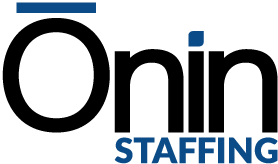At the heart of every successful workplace is effective communication—it’s the secret ingredient that fuels team synergy, project momentum, and a harmonious environment. Imagine a workday where every interaction is clear, constructive, and supportive. By mastering communication, you’re not only improving your professional relationships but also paving the way for personal advancement and recognition.
Four Unexpected Reasons Why Professional Communication is Important
- Active Listening Enhances Problem-Solving: When you practice active listening, you’re not just hearing words; you’re engaging with ideas, which allows you to better understand challenges and collaborate on effective solutions.
- Clarity Saves Time: Communicating with clarity and conciseness means less time is spent on misunderstandings and more on actionable steps. This efficiency is crucial in a fast-paced work environment where every minute counts.
- Empathy Builds Trust: When team members feel understood, trust grows. By showing empathy in your communications, you foster a supportive atmosphere that empowers everyone to contribute their best.
- Feedback Encourages Growth: Regular and constructive feedback is vital for professional development. It helps individuals and teams to continuously improve and adapt to the evolving demands of their roles.
Three Simple Things You Can Do to Improve Your Communication Skills
- Practice Reflective Listening: Next time you’re in a conversation, focus on summarizing what the other person has said before adding your thoughts. This practice confirms that you understand their message and shows that you value their perspective.
- Be Mindful of Non-Verbal Cues: Your body language, facial expressions, and tone of voice can greatly influence how your message is received. Try to ensure that your non-verbal cues align with your words to convey a clear and consistent message.
- Seek Feedback Actively: Don’t wait for feedback; ask for it. This proactive approach not only shows your commitment to personal growth but also encourages a feedback-rich culture within your team.
By integrating these strategies into your daily routines, you’re not just committing to being a better communicator—you’re stepping up as a pivotal player in your professional arena. Effective communication is more than a skill; it’s a practice that enriches both your work environment and your career path.


Recent Comments